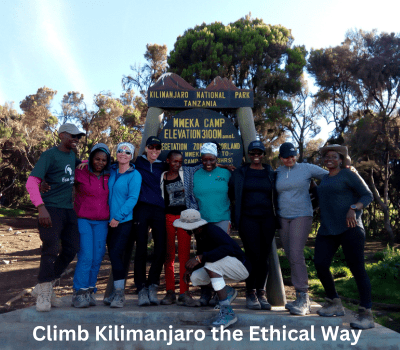What Qualifications Should I Look for in a Kilimanjaro Guide?
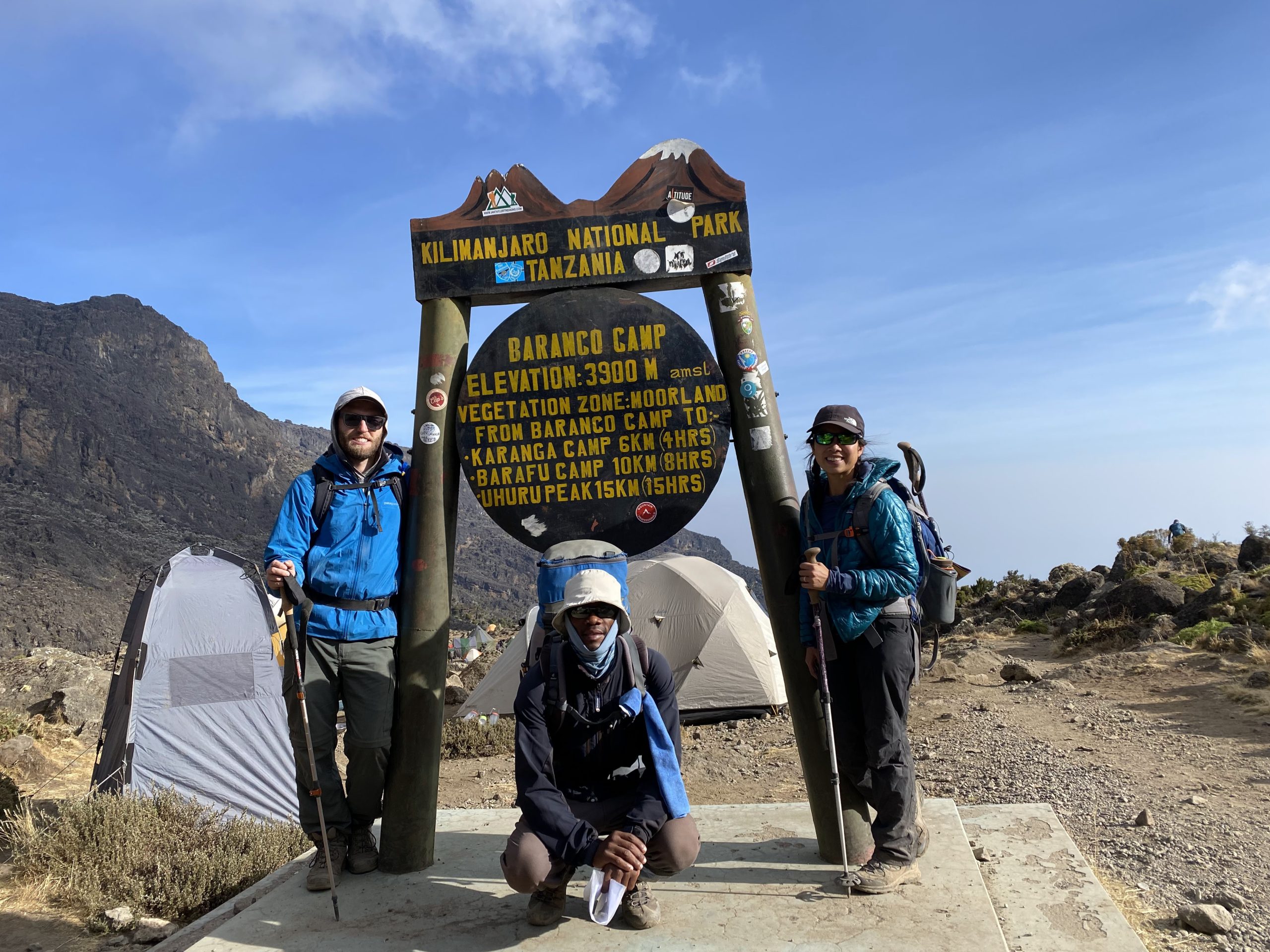
Climbing Mount Kilimanjaro is a once-in-a-lifetime adventure — but your experience depends heavily on one key factor: your guide. They’re more than someone who walks with you. Your guide becomes your leader, medic, motivator, translator, and safety officer for the entire journey.
So, how do you know you’re climbing with a qualified guide? In this detailed guide, we’ll walk you through the certifications, skills, and traits that define a world-class Kilimanjaro guide — and why Eco-Africa Climbing only works with the very best.
Why Guide Qualifications Matter on Kilimanjaro
This Isn’t Just a Hike
Kilimanjaro might not require ropes or technical climbing, but don’t let that fool you. With summit altitudes approaching 6,000 meters (19,341 feet), this mountain presents serious risks, including altitude sickness, extreme weather, and exhaustion. A guide is responsible for monitoring your health, managing your pace, and taking fast action in emergencies.
A qualified guide reduces risk and maximizes your summit chances. They understand mountain medicine, pacing strategy, client psychology, and trail logistics — all of which are critical when the going gets tough.
It’s the Law
According to Tanzania National Parks Authority (TANAPA), it’s illegal to climb Kilimanjaro without a licensed guide. And not just any guide — they must be registered through a certified tour operator like Eco-Africa Climbing. Park rangers verify these credentials at every gate.
Core Certifications for Kilimanjaro Guides
| Qualification | What It Means | Why It Matters |
|---|---|---|
| Wilderness First Responder (WFR) | Advanced first aid certification for remote emergencies | Ensures quick, knowledgeable response to altitude sickness, injury, and trauma |
| High Altitude Rescue Training | Specialized training for treating and evacuating high-altitude climbers | Guides know when and how to act fast in emergencies |
| TANAPA Licensed | Registered with the park authority to lead climbs legally | Required by law — no license, no entry |
| KPAP-Partner Guide | Works under a KPAP-certified operator | Guarantees fair labor, proper gear, and ethical standards |
At Eco-Africa Climbing, all our lead guides are WFR-certified, TANAPA-approved, and trained in high-altitude safety protocols. We operate under KPAP auditing to ensure full transparency and fairness across every climb.
Additional Skills to Look For
Experience in Summits and Years on the Mountain
Ask how many times a guide has summited Kilimanjaro. A highly experienced guide will have led hundreds of clients over many years — and will know how to adjust pace, handle emergencies, and motivate tired climbers in tough conditions.
At Eco-Africa Climbing, our senior guides have over 100 successful summits under their belt and bring decades of leadership to each new group.
English and Communication Skills
Your guide should speak fluent English and Swahili to facilitate smooth communication between you, the crew, and park authorities. They also serve as cultural translators and storytellers — adding richness and context to your experience.
Health Monitoring and Safety Knowledge
Daily Medical Checks
On Kilimanjaro, altitude affects everyone differently — and it can become dangerous quickly if not monitored properly. Your guide should be trained to conduct daily medical checks, including:
- Measuring blood oxygen saturation (SpO2)
- Checking heart rate
- Monitoring respiratory rate and skin color
- Asking about symptoms (headache, nausea, dizziness)
At Eco-Africa Climbing, we use a pulse oximeter to measure oxygen twice daily. Guides record your data and track changes to catch signs of altitude sickness early — a practice that has saved lives on the trail.
Rescue & Evacuation Knowledge
A qualified guide isn’t just trained to detect health issues — they know what to do next. This includes:
- Using oxygen tanks properly
- Coordinating porter-assisted evacuations
- Calling for helicopter rescue if needed
- Managing symptoms until you descend
Without these skills, a minor headache can escalate into life-threatening cerebral or pulmonary edema. Choose guides who have proven emergency skills — not just walking experience.
KPAP Compliance and Ethical Standards
What is KPAP?
The Kilimanjaro Porters Assistance Project (KPAP) is a non-profit that ensures fair treatment and ethical standards for porters and guides on Kilimanjaro. It independently audits companies to ensure:
- Guides and porters receive fair wages
- Crews are properly equipped (boots, warm gear, tents)
- Porters carry a legal weight limit (20kg max)
- Tipping procedures are transparent
At Eco-Africa Climbing, we are proud to be KPAP partners. Our guides are paid fair wages, receive financial training, and are provided the gear they need to lead responsibly.
Why KPAP Matters to You as a Climber
Climbers who hire KPAP-compliant guides can feel confident that their journey is not only safe — it’s ethical. You’re supporting a system that empowers Tanzanian workers and raises the standard for the entire mountain community.
Soft Skills: The Human Side of Guiding
Motivation and Emotional Intelligence
Climbing Kilimanjaro is as much a mental battle as a physical one. A great guide is a motivator — they lift your spirits when the trail feels endless and the summit feels too far. They know when to push, when to pause, and how to read your energy.
Our guides at Eco-Africa Climbing don’t just lead — they care. They build relationships with each client, listen to their concerns, and provide the kind of personalized encouragement that makes all the difference on summit night.
Cultural Insight and Local Knowledge
A qualified guide doesn’t just get you to the top — they help you understand the mountain, the ecosystem, and the people. Our guides share stories of Chagga culture, Kilimanjaro legends, and native wildlife. They offer insight that turns your climb into a cultural experience — not just a physical challenge.
When you climb with a local team, you’re not just supporting ethical travel — you’re enriching your own journey with real Tanzanian perspectives.
How to Vet a Guide Before Booking
Ask the Right Questions
When researching Kilimanjaro operators and guides, don’t just look at price — ask questions that reveal a guide’s qualifications and experience. Here’s a checklist to help:
| Qualification Area | Questions to Ask |
|---|---|
| Certifications | Is the guide WFR certified? Are they licensed by TANAPA? |
| Experience | How many Kilimanjaro summits have they completed? |
| Safety | Do they carry emergency oxygen and perform health checks? |
| KPAP Compliance | Are they part of a KPAP-audited company? |
| Soft Skills | Can they share local culture and help motivate when things get tough? |
If a company can’t confidently answer these questions, move on. Your guide is your most critical resource on the mountain — don’t compromise.
Read Verified Client Reviews
The best way to get a feel for a guide’s personality and professionalism is through real reviews. Look for feedback that mentions:
- How the guide handled altitude sickness or emergencies
- Attitude, motivation, and leadership style
- Communication and cultural storytelling
You can read hundreds of positive testimonials about our guides on our website and booking platforms — proof of the consistency, compassion, and professionalism of our team.
Red Flags: Warning Signs of an Unqualified Guide
No Proof of Certification
If a company or guide can’t produce License, TALA or KPAP documentation — walk away. These are the baseline standards for safety and legality on Kilimanjaro.
Suspiciously Low Prices
Beware of operators offering full climbs for under $1,500 USD. These low prices almost always mean:
- Guides and porters are underpaid or unpaid
- Medical gear is missing
- Food and shelter for crew are inadequate
- Permits and insurance may be forged or skipped
Climbing cheap can cost you — in safety, ethics, and ultimately your summit success.
No KPAP Affiliation
Any reputable company will proudly state their partnership with KPAP. If it’s not visible on their website — or if they give vague answers about treatment of porters — it’s a huge red flag.
Bad or No Reviews
Lack of testimonials, or reports of rushed climbs and unfriendly guides, signal deeper issues. Your guide should enhance your journey — not just walk ahead and point the way.
Conclusion
Choosing the right guide is the single most important decision you’ll make when planning your Kilimanjaro climb. From health and safety to cultural insight and motivation, a great guide will shape every moment of your journey — and ultimately determine your success on the mountain.
At Eco-Africa Climbing, our guides are the heartbeat of our operation. They are not only certified professionals with WFR training and high-altitude expertise — they are compassionate, ethical, and proudly local. With us, you’re climbing with a guide you can trust — backed by a company that puts safety, sustainability, and community first.
Don’t settle for less. Climb with confidence. Choose experience. Choose ethics. Choose Eco-Africa Climbing.
FAQs
What certifications should a Kilimanjaro guide have?
They should be TANAPA-licensed, Wilderness First Responder (WFR) certified, and affiliated with a KPAP-compliant company. High-altitude rescue training is also a major plus.
Can I meet my guide before the climb?
Yes! At Eco-Africa Climbing, we encourage all guests to visit our Moshi office and meet their guide before departure.
How many summits should a good guide have completed?
Look for a guide with at least 50–100 successful summits. Our senior guides have over 100 each and bring years of trail-tested leadership.
What’s the benefit of a KPAP-affiliated guide?
It ensures fair treatment, ethical pay, proper equipment, and high standards of service — all monitored independently by KPAP.
How do I book a Kilimanjaro climb with a certified guide?
Visit our Kilimanjaro Booking Request page or contact us to start planning your ethical, safe, and unforgettable climb.
Share:
Related Posts
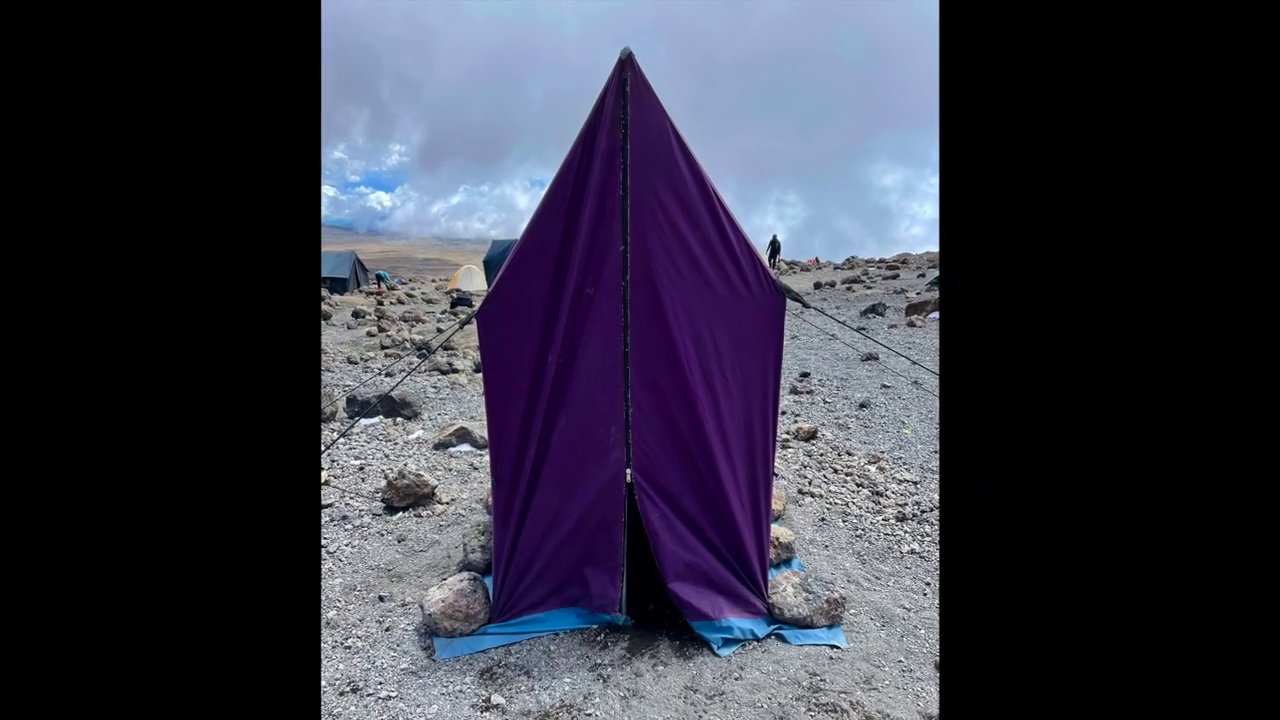
bathroom on mountain kilimanjaro
Bathroom on Mountain Kilimanjaro: What to Expect and How to Prepare Introduction One of the most common — and least discussed — questions from people
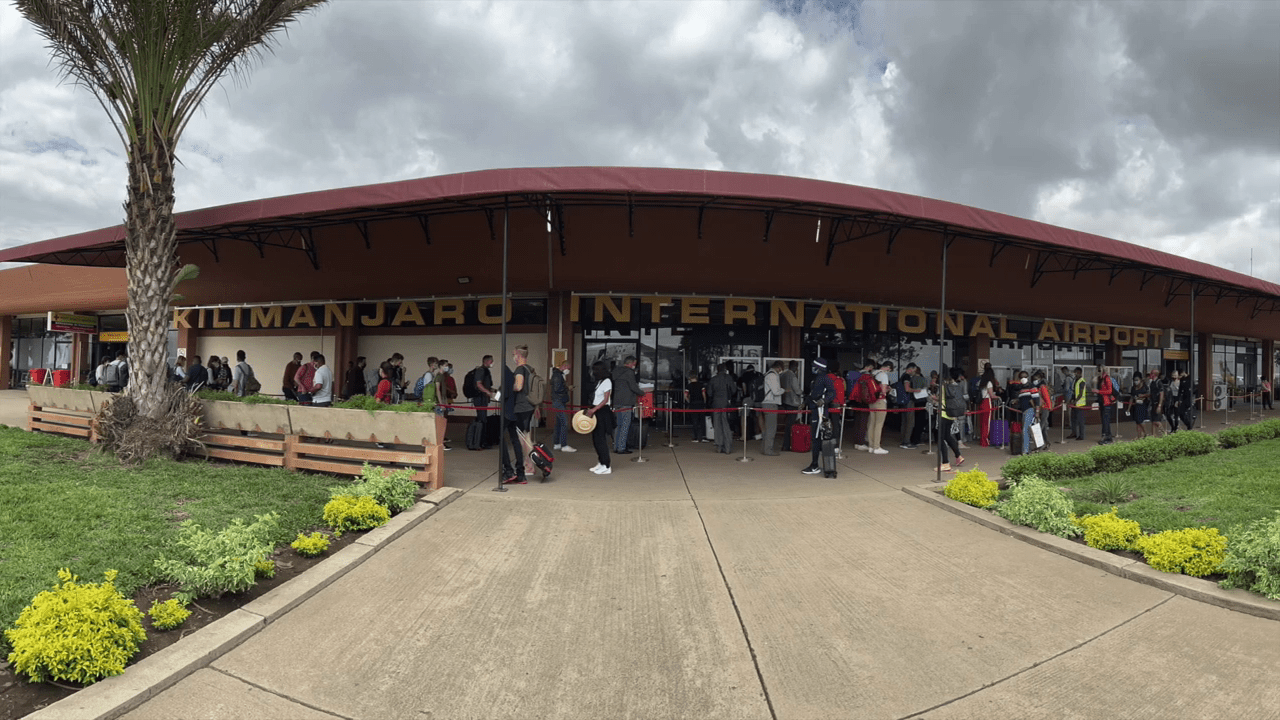
Are Guides Readily Available in Tanzania Without Prior Booking?
Are Guides Readily Available in Tanzania Without Prior Booking? Introduction: Should You Risk Climbing Without Pre-Booking? Climbing Mount Kilimanjaro is a dream for many adventurers.
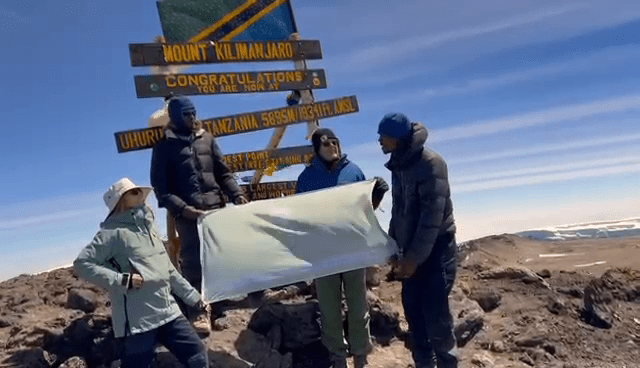
How Can I Find a Reliable Local Guide for My Kilimanjaro Expedition?
How Can I Find a Reliable Local Guide for My Kilimanjaro Expedition? Introduction: Why the Right Guide Is Key to Kilimanjaro Success Climbing Mount Kilimanjaro
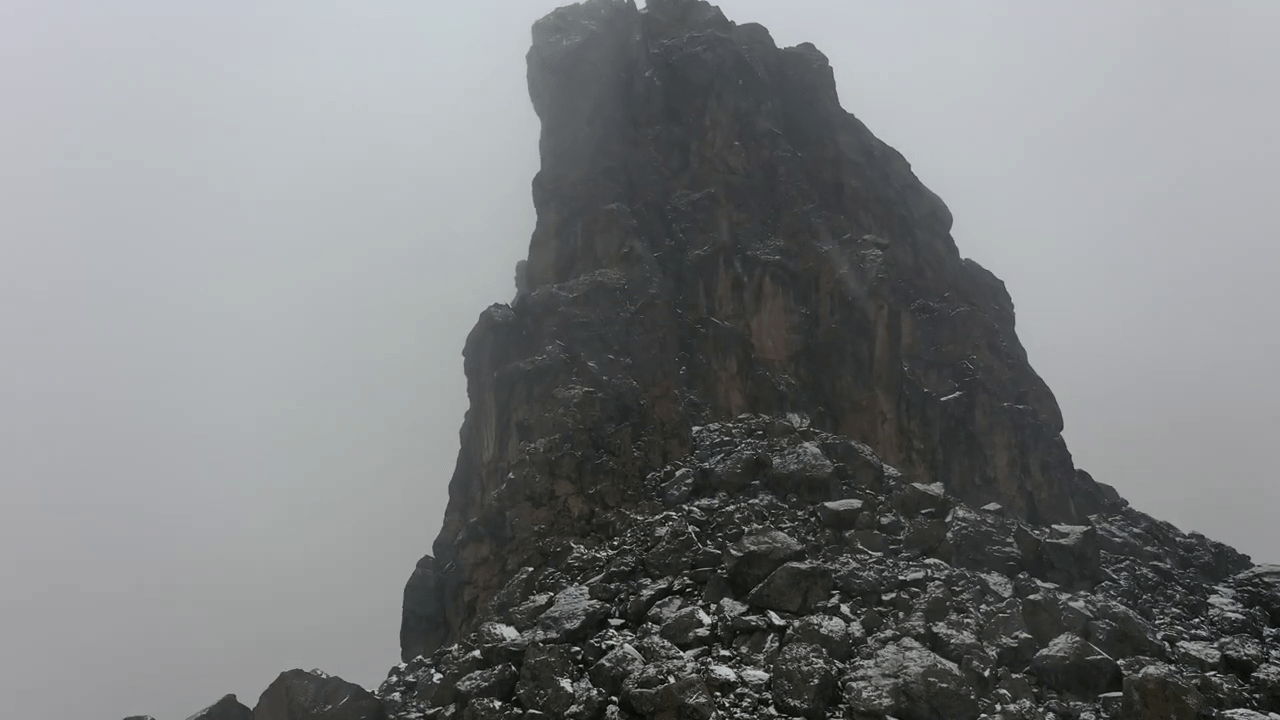
Is Climbing Kilimanjaro Dangerous for Individuals Without Mountaineering Experience?
Is Climbing Kilimanjaro Dangerous for Individuals Without Mountaineering Experience? Introduction: The Myth of Danger and Experience Many aspiring adventurers wonder if climbing Mount Kilimanjaro is
